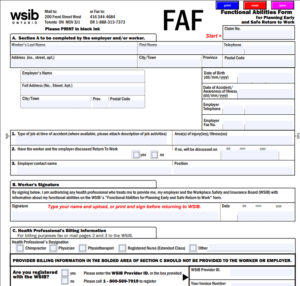Motor vehicle accidents often lead to traumatic brain injuries (TBIs), which have significant and lasting consequences for those involved.
In personal injury cases related to these accidents, the role of Independent Medical Evaluations (IMEs) becomes crucial.
This article provides an in-depth overview of IMEs in cases involving motor vehicle accidents and TBIs.
We’ll explore the process of conducting IMEs, the criteria used to assess TBIs, the types of medical professionals involved, and the legal and insurance considerations relevant to these cases.
Understanding the role of IMEs in motor vehicle accident TBIs allows stakeholders to make informed decisions regarding liability, settlements, and overall case management in personal injury claims.
Understanding Independent Medical Evaluations (IMEs)
Definition and Purpose of IMEs in the Context of Motor Vehicle Accident TBIs
Independent Medical Evaluations (IMEs), also referred to as independent medical examinations, are comprehensive assessments conducted by qualified medical professionals to evaluate the medical conditions and injuries of individuals who have been involved in motor vehicle accidents resulting in traumatic brain injuries (TBIs).
The primary objective of IMEs is to provide an unbiased and expert opinion on the extent of the injuries sustained, the cause of the injuries, and the impact of these injuries on the individual’s physical, cognitive, and psychological well-being.
Explanation of the Parties Involved: Insurance Companies, Legal Firms, and Employers
Various parties play crucial roles in the IME process related to motor vehicle accident TBIs, including insurance companies, legal firms, and employers. Insurance companies often request IMEs to assess the validity of a personal injury claim, determine the severity of the injuries, and ascertain the appropriate level of compensation.
Legal firms may utilize IME reports as supporting evidence in litigation to strengthen their clients’ claims or to defend against opposing claims. Employers may require IMEs to evaluate the fitness of their employees after an accident and determine their ability to return to work safely.
Role and Importance of IMEs as Objective Assessments in Personal Injury Cases
IMEs hold significant importance in personal injury cases that involve motor vehicle accidents resulting in TBIs. The key role of IMEs lies in their objective and impartial nature. These assessments are performed by independent medical professionals who are not affiliated with the treating physicians, ensuring an unbiased evaluation of the injuries.
IMEs provide comprehensive, evidence-based assessments, helping insurance companies, legal firms, and employers make well-informed decisions regarding liability, settlement negotiations, and overall case management. By providing expert analysis, IMEs contribute to the fair resolution of personal injury claims, ensuring that appropriate compensation is awarded to the injured parties.
The Process of Conducting IMEs in Motor Vehicle Accident TBI Cases
Conducting Independent Medical Evaluations (IMEs) in motor vehicle accident traumatic brain injury (TBI) cases requires a systematic and thorough approach to ensure accurate assessments. This section provides an overview of the step-by-step process involved in conducting IMEs in these specific cases.
- Referral and Initial Evaluation
The IME process begins with a referral from the relevant party, such as an insurance company, legal firm, or employer. This request initiates an independent assessment to evaluate the extent of the TBI and its connection to the motor vehicle accident. Along with the referral, relevant medical records and supporting documentation are provided. - Scheduling and Preparation
Upon receiving the referral, the IME coordinator or responsible medical professional schedules the examination. This includes coordinating with the injured party, determining the location and timing of the evaluation, and ensuring all necessary medical records are obtained for review. - Medical Records Review
Before the physical examination, the medical professional conducting the IME thoroughly reviews the provided medical records. They analyze previous diagnostic tests, treatment plans, and progress notes related to the TBI. The goal is to gain a comprehensive understanding of the individual’s medical history and the impact of the motor vehicle accident on their condition. - Physical Examination
The physical examination is a crucial component of the IME process. The specific tests and assessments conducted depend on the nature and severity of the TBI. In motor vehicle accident cases, medical professionals may perform various neurological tests to evaluate cognitive function, memory, coordination, reflexes, and other relevant areas. - Diagnostic Testing
In addition to the physical examination, diagnostic testing may be necessary to gather objective data about the TBI. This can involve imaging tests such as magnetic resonance imaging (MRI), computed tomography (CT) scans, or neurophysiological tests to evaluate brain function. - Report Writing
Following the examination and review of all relevant information, the medical professional prepares a comprehensive report summarizing their findings. The report includes an evaluation of the TBI, the impact of the motor vehicle accident on the individual’s condition, and any recommendations for further treatment or rehabilitation. - Submission and Review
The completed IME report is submitted to the referring party, whether it be an insurance company, legal firm, or employer. The report undergoes a thorough review to ensure accuracy, objectivity, and compliance with any legal or industry guidelines. - Utilization in Litigation or Claims Settlement
Once the IME report is reviewed and accepted, it can be utilized in litigation or claims settlement negotiations. Both the plaintiff and defense attorneys may use the report as evidence to support their respective arguments concerning liability and damages. The report may also serve as a basis for settlement discussions between the involved parties.
The process of conducting IMEs in motor vehicle accident TBI cases requires meticulous attention to detail, adherence to professional standards, and an unbiased approach. By following this step-by-step process, insurance companies, legal firms, and employers can obtain comprehensive and reliable assessments of TBIs resulting from motor vehicle accidents.
Criteria and Considerations in Assessing TBIs in IMEs
Common Diagnostic Criteria and Guidelines for TBI Evaluation
When conducting Independent Medical Evaluations (IMEs) in motor vehicle accident cases involving traumatic brain injuries (TBIs), it is crucial for medical professionals to adhere to common diagnostic criteria and guidelines. These criteria and guidelines provide a standardized framework for assessing and evaluating TBIs, ensuring consistency and accuracy in the evaluation process.
Designated by professional medical organizations such as the American Congress of Rehabilitation Medicine (ACRM) and the American College of Radiology (ACR), these criteria often include the Glasgow Coma Scale (GCS) and the Diagnostic and Statistical Manual of Mental Disorders (DSM-5).
The Glasgow Coma Scale measures the level of consciousness and severity of brain injury by evaluating eye-opening, verbal, and motor responses. It provides a numerical score that helps medical professionals classify TBIs into mild, moderate, or severe categories.
The Diagnostic and Statistical Manual of Mental Disorders (DSM-5) is another commonly used tool for assessing TBI-related cognitive impairments. It provides a comprehensive set of diagnostic criteria for evaluating cognitive and psychological conditions that may result from TBIs, such as memory loss, executive functioning deficits, and mood disorders.
By utilizing these standardized diagnostic criteria and guidelines, medical professionals can ensure that their evaluations are based on objective and evidence-based assessments, ultimately providing reliable information for relevant parties involved in motor vehicle accident TBI cases.
Assessment of Physical, Cognitive, and Psychological Impairments
A comprehensive evaluation of TBIs in motor vehicle accident IMEs also involves assessing the physical, cognitive, and psychological impairments caused by the injury. This multi-faceted evaluation is essential for understanding the full impact of the TBI on the individual’s overall functioning and quality of life.
Physical impairments resulting from TBIs may include motor deficiencies, sensory impairments, or other physical limitations. Medical professionals may perform physical examinations and review medical records to identify these impairments. They may also consult with specialists such as neurologists, physical therapists, and occupational therapists to gain a more detailed understanding of the individual’s physical capabilities and limitations.
Cognitive impairments resulting from TBIs are also a critical aspect of the evaluation. Medical professionals may employ various cognitive tests, such as neuropsychological assessments, to assess the individual’s memory, attention, problem-solving abilities, and other cognitive functions. These tests provide valuable insights into the specific cognitive deficits caused by the TBI and help formulate appropriate treatment plans or recommendations.
Psychological impairments, such as depression, anxiety, and post-traumatic stress disorder (PTSD), may also be present in individuals with TBIs. Medical professionals may conduct psychological assessments and utilize standardized measures, including questionnaires and interviews, to assess and quantify these psychological impairments. Such assessments provide information about the psychological impact of the TBI, potentially guiding treatment plans and providing a more comprehensive evaluation of the individual’s overall functioning.
Evaluation of Pre-Existing Conditions and Determining Injury Extent
In motor vehicle accident TBI cases, it is essential to evaluate pre-existing conditions to determine the extent of injuries caused solely by the accident and distinguish them from pre-existing conditions. Medical professionals conducting IMEs carefully review medical records, conduct physical examinations, and consult with other specialists to differentiate between prior injuries or conditions and those directly resulting from the motor vehicle accident.
Considering pre-existing conditions helps medical professionals accurately assess the impact of the motor vehicle accident on the individual’s TBI and overall well-being. This evaluation is crucial for determining liability, assessing damages, and ensuring fair and accurate compensation for the injuries sustained.
Determining the extent of the injury is also crucial in motor vehicle accident TBI IMEs. Medical professionals utilize their expertise and diagnostic tools to determine the severity of the TBI and the resulting impairments. This evaluation helps insurance companies, legal firms, and employers understand the potential financial and healthcare needs of the injured individual, which can inform the settlement or compensation process.
By thoroughly evaluating pre-existing conditions and determining the extent of the TBI, medical professionals involved in IMEs can provide an accurate and comprehensive assessment of the individual’s injuries. This aids the parties involved in making informed decisions regarding liability, settlements, and overall case management in motor vehicle accident TBI cases.
The Role of Medical Professionals in IMEs
In motor vehicle accident traumatic brain injury (TBI) cases, medical professionals play a crucial role in Independent Medical Evaluations (IMEs). These healthcare professionals contribute their expertise to help determine the extent of a TBI and its impact on the injured individual.
Types of Medical Professionals Involved in IMEs
a. Neurologists: Neurologists specialize in diagnosing and treating brain and nervous system disorders. In TBI cases, they assess cognitive impairments, neurological deficits, and other symptoms resulting from the accident.
b. Neuropsychologists: Neuropsychologists evaluate the relationship between brain functioning and behavior. They assess cognitive impairments using tests and evaluations measuring mental abilities, memory, attention, and problem-solving skills.
c. Radiologists: Radiologists interpret diagnostic imaging, such as CT scans or MRIs, to determine the presence and extent of brain injuries. Their expertise provides objective evidence and aids in assessing the severity of TBIs.
Expertise and Qualifications Required for Professionals Assessing TBIs
a. Advanced training: Medical professionals involved in IMEs for TBI cases receive advanced training in their specialties. Neurologists, for example, undergo specialized education and residency training for diagnosing and treating brain injuries.
b. Board certifications: Many medical professionals involved in IMEs hold board certifications in their specialty. These certifications indicate that they have met rigorous standards and possess the necessary knowledge and skills to assess and provide expert opinions on TBIs.
c. Experience with IMEs: Medical professionals conducting IMEs for TBI cases often have experience conducting evaluations and providing expert testimony in legal proceedings. This experience ensures they are well-versed in the specific requirements and expectations of IMEs in personal injury cases.
Collaboration between Medical Professionals and Legal or Insurance Entities
a. Medical records review: Medical professionals conducting IMEs thoroughly review the injured individual’s medical records, including hospital reports, diagnostic imaging results, and previous medical histories. This review provides a comprehensive understanding of the individual’s condition and any pre-existing factors.
b. Objective assessments: Medical professionals conduct physical examinations and administer assessments to objectively evaluate the extent of TBIs. This includes assessing cognitive abilities, neurological functioning, and any physical impairments resulting from the accident.
c. Consultation and communication: Medical professionals often communicate and collaborate with legal firms, insurance companies, and employers throughout the IME process. This collaboration ensures that all relevant information is considered and helps address any specific questions or concerns.
By leveraging the expertise of medical professionals, IMEs in motor vehicle accident TBI cases can provide valuable insight into the extent and impact of TBIs. Their assessments and objective evaluations inform decisions regarding liability, settlements, and overall case management, ensuring fair and just outcomes for all parties involved.
Legal and Insurance Considerations
Legal Framework Surrounding IMEs in Motor Vehicle Accident TBI Cases
In motor vehicle accident TBI cases, IMEs play a crucial role within the legal framework. Laws and regulations govern the use of IME reports, ensuring fair and objective evaluations. These evaluations help determine the extent of injuries, liability, and appropriate compensation for the injured party.
Admissibility of IME reports can vary by jurisdiction. Courts consider the qualifications and expertise of medical professionals conducting the IMEs and adherence to established protocols. Meeting these legal requirements ensures the credibility of IME reports during legal proceedings.
Role of IMEs in Determining Liability and Assessing Damages
IMEs are indispensable in determining liability in motor vehicle accident TBI cases. Insurance companies, legal firms, and employers rely on the objective assessments provided by IME reports to understand the connection between the accident and traumatic brain injuries.
IMEs also play a vital role in accurately assessing damages. They evaluate the physical, cognitive, and psychological impairments caused by TBIs, helping calculate appropriate compensation for medical expenses, pain and suffering, loss of income, and other damages associated with the accident.
Strategies Employed by Attorneys in Utilizing IME Reports in Litigation
Attorneys in motor vehicle accident TBI cases employ different strategies when utilizing IME reports during litigation. Plaintiff attorneys use IME reports to strengthen their case, substantiate injuries, and demonstrate the impact on the victim’s life. They may also rely on IME reports to challenge the defense’s argument or refute assessments made by other experts.
Defense attorneys use IME reports to challenge the severity of injuries, disprove causation between the accident and TBIs, or highlight pre-existing conditions that may have contributed to the injuries. IME reports serve as valuable tools in mounting a strong defense and minimizing potential liability for their clients.
Understanding the legal and insurance considerations surrounding IMEs in motor vehicle accident TBI cases allows insurance companies, legal firms, and employers to navigate personal injury claims more effectively. IMEs provide an objective and comprehensive assessment of TBIs, serving as crucial evidence in determining liability and facilitating fair compensation for the injured party.
Conclusion
In this article, we provided a comprehensive exploration of the role of Independent Medical Evaluations (IMEs) in cases involving motor vehicle accidents and traumatic brain injuries (TBIs).
IMEs serve as vital tools in assessing the extent of injuries, determining liability, and facilitating fair compensation for individuals involved in such accidents. By offering an unbiased and expert perspective, IMEs contribute to the objective evaluation of TBIs’ physical, cognitive, and psychological impact.
They assist insurance companies, legal firms, and employers in making informed decisions, ensuring a just resolution of personal injury claims.
We also highlighted the importance of adherence to standardized diagnostic criteria and guidelines, the involvement of qualified medical professionals, and the legal and insurance considerations that shape the IME process.
Understanding the multifaceted aspects of IMEs in motor vehicle accident TBI cases is essential for all stakeholders involved, ultimately leading to more equitable outcomes in personal injury claims.
Further Considerations
1. Complexity of Traumatic Brain Injuries: Traumatic brain injuries resulting from motor vehicle accidents can vary greatly in severity and can present with a wide range of symptoms and complications. This complexity makes it challenging to accurately assess the extent of the injury and its impact on the individual’s daily functioning.
2. Objectivity and Bias: Independent medical evaluations aim to provide an unbiased assessment of the patient’s condition. However, it can be challenging to ensure complete objectivity, as the medical professional conducting the evaluation may have inherent biases or pressure from insurance companies, legal firms, or employers that could influence their findings.
3. Lack of Standardized Guidelines: There is a lack of standardized guidelines for assessing traumatic brain injuries in motor vehicle accident cases. This can result in inconsistencies in the evaluation process, making it difficult to compare findings between different medical professionals or to establish a clear baseline for determining the extent of the injury.
4. Legal and Insurance Considerations: Independent medical evaluations in motor vehicle accident TBI cases often have legal and insurance implications. Medical professionals conducting IMEs must navigate complex legal frameworks, adhere to specific reporting requirements, and consider various insurance policies and coverage limits.
5. Emotional and Psychological Factors: Motor vehicle accidents resulting in traumatic brain injuries can have significant emotional and psychological impacts on the individual. Assessing these factors and their impact on the overall evaluation process is a unique challenge in IMEs involving motor vehicle TBI cases.
FAQs About IMEs in Motor Vehicle Accident Traumatic Brain Injury (TBI) Cases
1. What role do Independent Medical Evaluations (IMEs) play in motor vehicle accident TBI cases?
IMEs play a crucial role in providing objective assessments of TBIs in personal injury cases. They help determine the extent of injuries, assess impairments, and provide valuable medical opinions for insurance companies, legal firms, and employers involved in these cases.
2. Who refers individuals for IMEs in motor vehicle accident TBI cases?
Individuals may be referred for IMEs by insurance companies, legal firms representing the injured party or the at-fault party, or employers seeking an independent assessment of the TBI claim.
3. What criteria are used to evaluate TBIs in IMEs?
IMEs use diagnostic criteria and guidelines, such as those provided by the American Congress of Rehabilitation Medicine (ACRM) or the Diagnostic and Statistical Manual of Mental Disorders (DSM-5), to assess TBIs. These criteria help determine the severity of the injury and its impact on physical, cognitive, and psychological functioning.
4. Are all medical professionals qualified to conduct IMEs for motor vehicle accident TBIs?
No, not all medical professionals are qualified to conduct IMEs for TBIs. Specialists such as neurologists, neuropsychologists, or rehabilitation physicians with relevant expertise and training in assessing TBIs are typically involved in these evaluations.
5. How long does the IME process typically take in motor vehicle accident TBI cases?
The timeframe for IMEs can vary depending on factors such as the availability of medical professionals, scheduling, and the complexity of the case. Typically, IMEs for motor vehicle accident TBIs can take several weeks to months to complete.
6. Can IME reports influence the outcome of a motor vehicle accident TBI case?
Yes, IME reports carry considerable weight in determining liability and assessing damages in motor vehicle accident TBI cases. These reports provide objective medical evaluations that can influence settlements, court verdicts, and overall case management.
7. Can IMEs evaluate pre-existing conditions in motor vehicle accident TBI cases?
Yes, IMEs can evaluate pre-existing conditions and distinguish between injuries caused by the motor vehicle accident and those that existed prior to the accident. This assessment helps determine the extent of the injuries caused by the accident and their contribution to the individual’s current condition.
8. What legal considerations should be kept in mind regarding IMEs in motor vehicle accident TBI cases?
Legal considerations include ensuring that IMEs are conducted in compliance with state laws, understanding the role of IMEs in the discovery phase of litigation, and recognizing any potential biases that may arise during the evaluation process.
9. How are IME reports used in litigation for motor vehicle accident TBI cases?
IME reports can be utilized by plaintiff and defense attorneys to support their respective claims. Plaintiff attorneys may use these reports to demonstrate the severity of the TBI and the resulting damages, while defense attorneys may use them to challenge the validity of the claim or assess the extent of the injuries.
10. Can IMEs be requested by both the injured party and the at-fault party in a motor vehicle accident TBI case?
Yes, in personal injury cases involving TBIs, both the injured party and the at-fault party may request IMEs to obtain independent assessments of the TBI. This allows all parties involved to have a fair and objective evaluation of the injuries and their impact.
Glossary of Terms Used in the Article
1. Independent Medical Evaluation (IME): An objective assessment conducted by a qualified medical professional to evaluate injuries, disabilities, or impairments in personal injury cases.
2. Traumatic Brain Injury (TBI): A brain injury caused by an external force or trauma, often resulting from motor vehicle accidents.
3. Personal injury cases: Legal disputes that involve bodily harm, psychological distress, or emotional suffering caused by the negligence or intentional actions of another party.
4. Insurance companies: Organizations that provide coverage and financial protection in the event of accidents, injuries, or property damage.
5. Legal firms: Professional organizations specializing in providing legal advice and representation to clients involved in litigation or legal disputes.
6. Employers: Individuals or organizations that hire and engage employees in various industries and sectors.
7. Objective assessments: Evaluations that are unbiased, impartial, and based on factual evidence, aimed at providing an accurate and fair assessment of an individual’s condition or circumstances.
8. Referral: The process of directing an individual to undergo an independent medical evaluation, often initiated by insurance companies, legal firms, or employers.
9. Cognitive tests: Assessments that measure a person’s cognitive abilities, such as memory, attention, and problem-solving skills, to evaluate the impact of a traumatic brain injury.
10. Neurological tests: Examinations that evaluate the functioning of the nervous system and brain, including tests for reflexes, motor skills, and sensory functions.
11. Timeframe: The duration or timeline within which the independent medical evaluation process takes place, including scheduling, documentation review, and physical examinations.
12. Logistics: The practical aspects and coordination involved in conducting independent medical evaluations, including scheduling appointments, arranging transportation, and handling medical records.
13. Diagnostic criteria: Established guidelines or standards used by medical professionals to identify and diagnose specific conditions or injuries, such as traumatic brain injuries.
14. Physical impairments: Limitations or disabilities affecting an individual’s bodily functions, mobility, or physical capabilities as a result of a traumatic brain injury.
15. Cognitive impairments: Deficits or difficulties in mental processes, including memory, attention, problem-solving, and decision-making, caused by a traumatic brain injury.
16. Psychological impairments: Mental health conditions or emotional distress resulting from a traumatic brain injury, such as anxiety, depression, or post-traumatic stress disorder (PTSD).
17. Pre-existing conditions: Medical conditions or injuries that existed before the occurrence of a motor vehicle accident and may have an impact on the assessment of the traumatic brain injury.
18. Liability: Legal responsibility or accountability for the damages, injuries, or losses caused by an individual or entity.
19. Damages: The monetary compensation sought for the losses or harms incurred by the injured party in a personal injury case.
20. Litigation: The process of resolving legal disputes in a court of law through a formal legal proceeding, often involving a trial or settlement negotiations.






